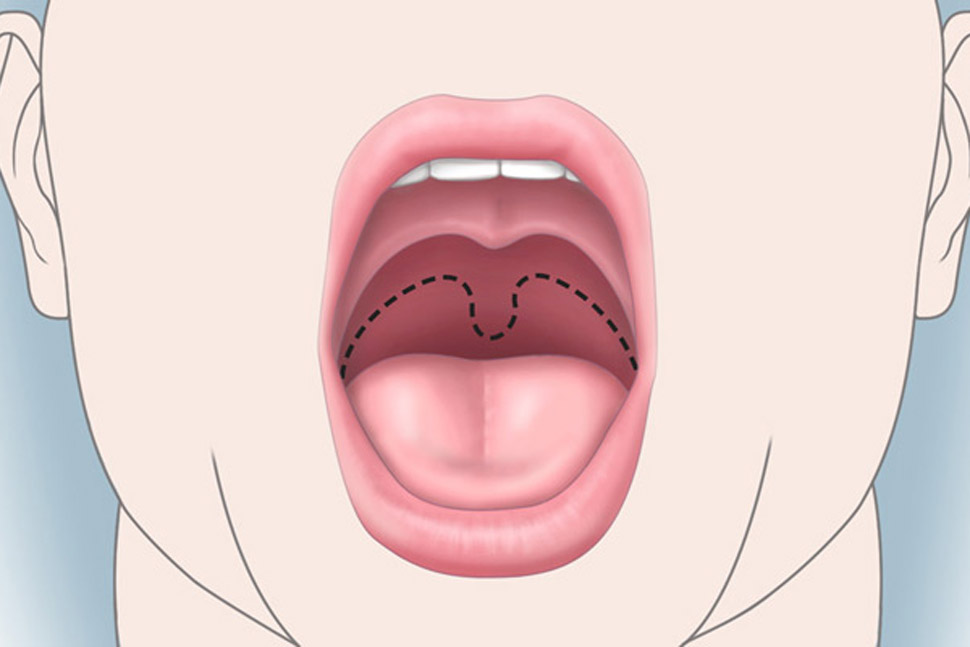By Rabbi Yair Hoffman
Yes, you probably thought that this was some sort of medical article. Sorry. It is not. But it does have to do with the interpretation of the bracha recited at every wedding.
People often ignore anything that remotely resembles Dikduk – but, hopefully, this article will enlighten our appreciation of our davening and our brachos. It will also help us focus on correctly pronouncing words and understanding them.
THE DOTS IN THE LETTERS
So most of us are familiar with the dots in letters. Many of us know that there is a BeGeD KeFeT rule which is: Generally speaking, when the letter Bais, Gimel, Dalet, Chof, Fay and Tof appear at the beginning of the word – it has a dot in it called a Dagaish (or a Dagaish Kal). The BeGed KeFeT letters, however, lose their dot when the previous word ended with an “Airway-Open” syllable.
THE AIRWAY OPEN LETTER EXCEPTION
What are the Airway Open letters at the end of the word? They are the Yud, the Hay, the Vov and the Aleph. Now, let’s examine the Pasuk that is recited when we take out the Torah. Ki MiTzion Taitzeh Sorah.. The Ki has a dot because it is not preceded by an Airway Open Letter. The Taitzay has a dot because the previous syllable ends with an ende-nun and your tongue is touching the roof of your mouth – Airway closed. The Sof in Torah loses its dot because the previous syllable is “ay” which is Airway Open – so we pronounce it Sorah, not Torah.
THE TWO EXCEPTIONS TO THE AIRWAY OPEN LETTERS EXCEPTION
The Bnei Yisaschar in his Igra D’Kallah in parshas Chayei Sarah notes that when we have a tradition otherwise, we ignore the Airway Open Exception. Also, if there is a trop mark pause or end of pasuk preceding it, we ignore the Airway Open exception. (For those who wish to delver further, see Bais Yoseph OC 51 and Eliyahu Rabbah #7.)
WHAT DOES THIS HAVE TO DO WITH WEDDINGS?
It is interesting to note that the order of the bracha that the Mesader Kiddush, the one who officiates at the wedding recites under the Chuppah is “Mekadesh amo Yisroel al yedei chupah v’kiddusheen seems somewhat strange.” Don’t we usually do the wedding with Kiddushin coming first and then we do chupah second?
In a possible answer to this question, the Baal HaIttur and the Shlah HaKodesh have a different word going on in that bracha. The “v” in the transliterated bracha above is generally written with a vov, but on account of the “AIRWAY OPEN RULE” it very well could have been a Bais!
In fact, in the Baal HaIttur printed in Warsaw 5636, Vol. II Shaar Birchas Chassanim p. 124 and in the Siddur HaShla it does have a Bais! Many Sefardic Siddurim also have it as a Bais (or should we say “bet”?) as well.
THE SHEILTOS SWITCHES THE ORDER
Rav Achai Gaon in his Sheiltos actually switches up the order and has (#16 Mossad HaRav Kook edition 5746 p. 100) it as, “al yedei kiddushin v’chuppah!”
AMO – HIS NATION
While we are at it, there are two other issues in that bracha. Our Gemorah does not have the word “Amo” – His nation, it just says “Yisroel.” The Tur and the Bais Yoseph follow the text of the Gemorah and just have, “Mekadesh Yisroel al yedei Chuppah v’Kiddusheen.
THE MILRA NOT MILAIL PRONUNCIATION OF KIDDUSHEEN
One last point: the word Kiddusheen is not pronounced Kidooshin – rather, the stressed syllable is the last one. This is called, “milrah.” When the stress is on the second to last syllable (or sometimes earlier), it is called, “mil’ail.”
The author can be reached at [email protected]












One Response
Always wondered about that reversed order!
Incidentally, there is more than ample evidence that the Ashkenazi tradition of pen-ultimate stress (kidooshin, in your example) is ancient. The practice to try and reverse this tradition begun with the disciples of the Vilna Gaon, and later received support from the Ivrit-speaking (or, rather, non-Yiddish-speaking) ‘Lithuanian’ aficionados – who are usually clueless about the rules of phonetics in Hebrew and just know to place the stress on every word-final syllable, which is not how it works. Traditional Russian Hebrew (for example, as used by R Hayim Konyevski) was heavily syncopated to our ears, and so also, Hungarian Hebrew.